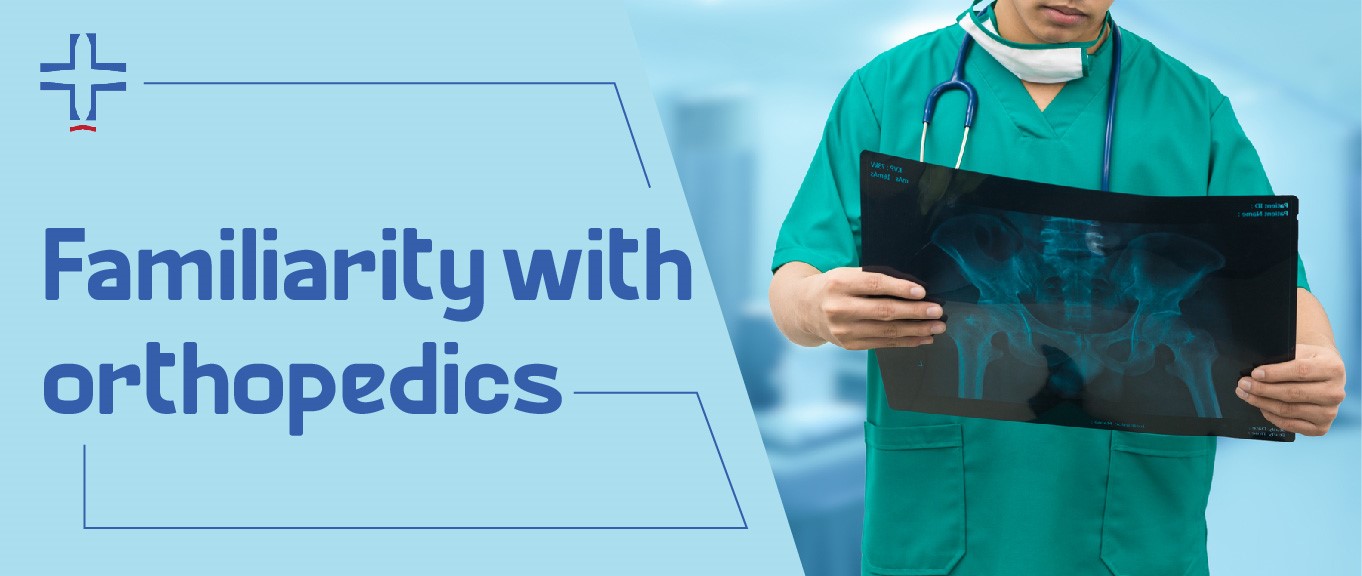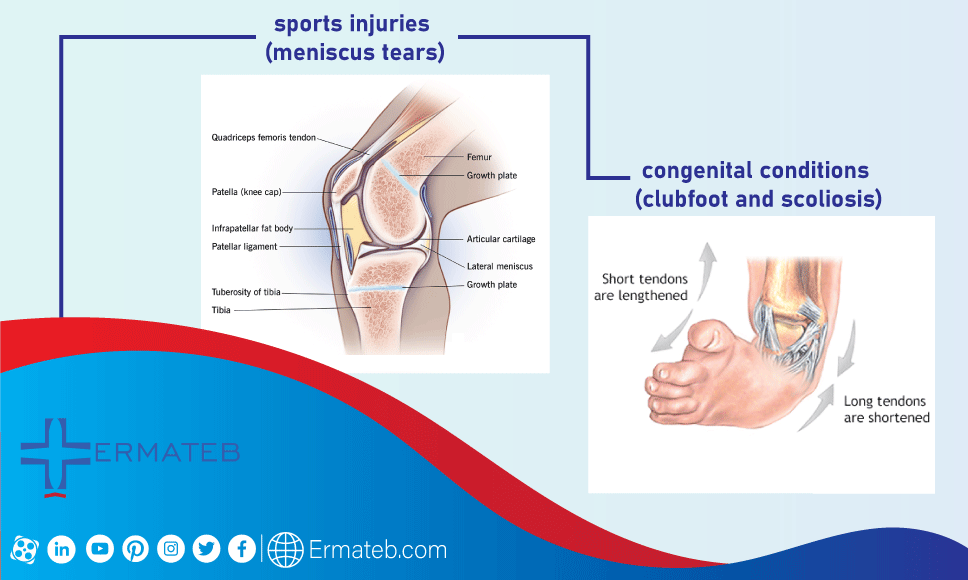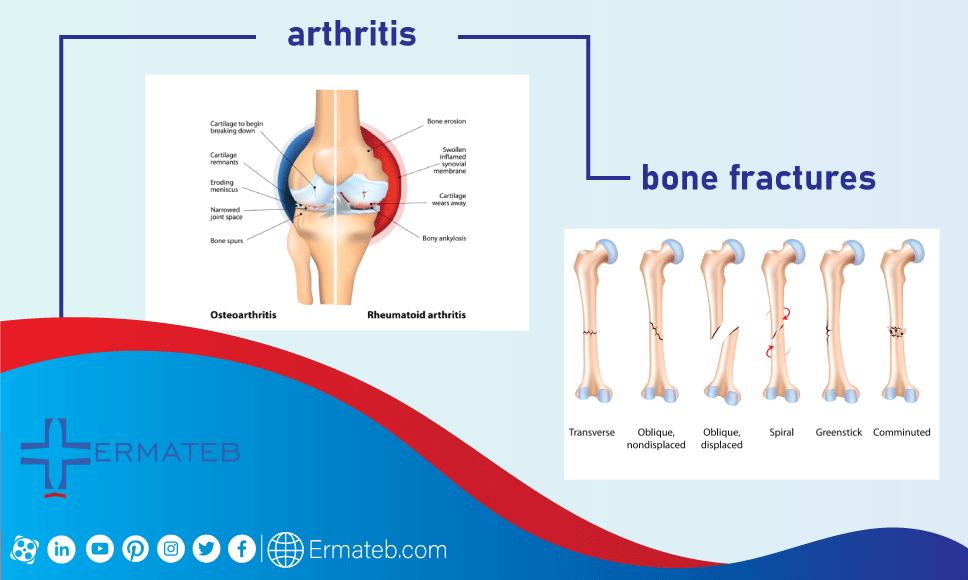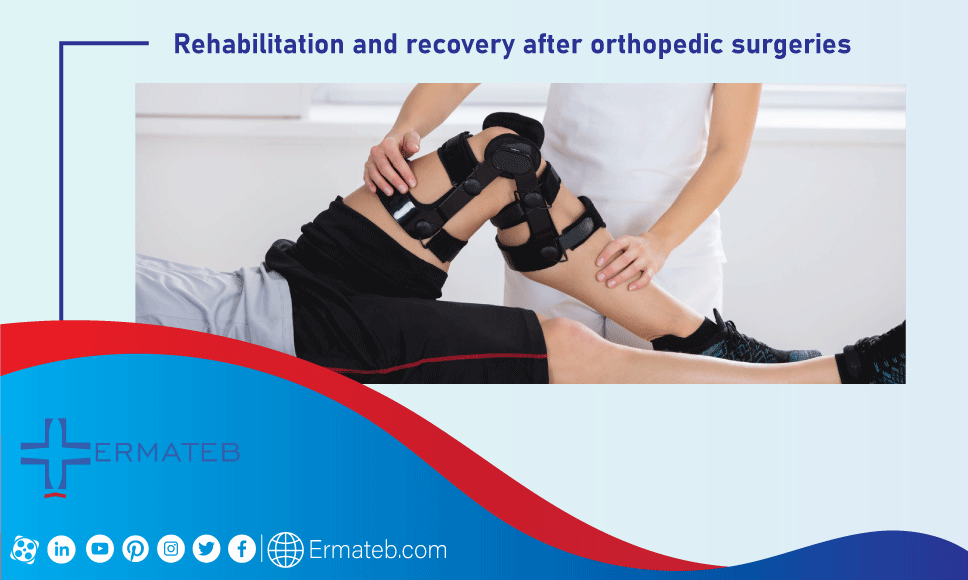
It’s Specialty in various branches of Medicine which relates to musculoskeletal system (bones, muscles, joints, ligaments and tendons)
The one who is a member of orthopedic treatment team and has studied orthopedic specialty.
Brief history and the root of orthopedics :
orthopedic word comes from Ancient Greece. It's the combination of two old words orthos+paidios. Orthos means straight and free from deformity and paidios denotes child so orthopedics precisely means straight child. However, historical evidences are limited, but the orthopedic bases back to primitive man. Fossil databases show various treatments of fractures in primitive times.
While the history of orthopedic in Iran backs to thousands of years ago and the time before Medes period, new methods of orthopedic treatments were discussed in Abu Bakr Muhammad ibn Zakariya Razi (Rhazes) and Avicenna writings.
Who is orthopedist and what they do exactly?
Orthopedists cure variety of musculoskeletal problems which can be present from birth or occur in injuries or even age related problems.
Orthopedic treatment team includes these specialists :
• physician assistants (physician assistants may diagnose illnesses, develop and manage treatment plans, prescribe medications, and may serve as a patient’s principal healthcare provider)
• nurse practitioners (these nurses are trained to assess patient needs, order and interpret diagnostic and laboratory tests, diagnose disease, formulate and prescribe treatment plans)
• occupational and physical therapists (health care provider who promote, maintain, or restore health through physical examination, diagnosis, prognosis, patient education, physical intervention, rehabilitation, disease prevention and health promotion)
• athletic trainers (certified and licensed health care specialist who provides treatments in the field of sports medicine)
• Orthopedist
It's important to know the most common conditions which may be treated by orthopedists:
sports injuries (tendinitis, meniscus tears, and anterior cruciate ligament (ACL) tears), congenital conditions (clubfoot and scoliosis), joint problems (like arthritis), bone fractures, soft tissue injuries (muscle, tendon, and ligament), back pain, neck pain, shoulder pain, bursitis and carpal tunnel syndrome. During first visit the orthopedist tries to find out the problem and the exact diagnosis.

The diagnosis route contains a brief history of patient condition, physical examination and if it's necessary radiographic work up. It's very important to give all the details about the condition (symptoms, past medical history, drug history, last lab data, X-rays conducted before the appointment and familial history) cause it reduces the unnecessary testing and help the doctor to approach the diagnosis quickly and moreover starting treatment procedures with no waste of time.

What are the routine diagnostic test which may help the orthopedist?
• an MRI scan
• a CT scan
• a bone scan
• an ultrasound
• nerve conduction studies
• blood tests
The doctor will ask for suitable test according to patient condition and differential diagnosis related to symptoms.
After finding out the exact problem the treatment procedures start. Due to condition the treatment sometimes varies just utilizing medications is enough to rehabilitate but maybe invasive cures like surgeries and implantations would be sufficient.
The most common treatments:
• over-the-counter anti-inflammatory medications
• rehabilitation and physical therapy
• home exercise programs
• injections
• acupuncture
• mobility aids
• surgery, though this is a last resort
What are the operations orthopedists mostly do ?
• Total joint replacement (surgical procedure in which parts of an arthritic or damaged joint are removed and replaced with a metal, plastic, or ceramic device called a prosthesis) • Arthroscopic surgery ( a surgical procedure that orthopedic surgeons use to visualize and treat problems inside a joint)
• Fracture repair surgery (performed when a broken bone can't heal properly with casting, splinting or bracing alone)
• Bone grafting surgery (procedure that uses transplanted bone to repair and rebuild diseased or damaged bones)
• Spinal fusion, Lumbar disk (surgery to permanently connect two or more vertebrae in your spine, eliminating motion between them)
Orthopedic surgeries and services are hard and sensitive and need to be skilled enough. These reasons make procedures very expensive.
Rehabilitation and recovery after orthopedic surgeries
Depending on the type of orthopedic surgery, the recovery time varies. You must be sure that your surgeon, physical therapists, Honor health nurses, and other professionalists try for your quick rehabilitation, and their goal is to decrease your recovery timeline. After discharge from the hospital, you should follow your rehabilitation program on your own and try to do your best in physical therapies (like adaptation to the equipment and other items you use on a regular basis, Training your muscles and nerves, Restoring your strength and balance, Helping yourself to perform daily living tasks and ...)
In some cases, doctors prefer to monitor patient's rehabilitation in their offices.
Regardless of location, the goals of rehabilitation include:
• Increased range of motion.
• Improved function.
• Greater strength and mobility.
Rehabilitation and recovery
Be realistic and patient during your treatment and recovery process. This may help your recovery very much. Having realistic expectations will fast the rehabilitation; as an example, you have to know that feeling some lingering pain or discomfort after surgery is totally normal.
Your doctor will discuss some points like the typical recovery times, rehabilitation requirements, and expectations for your individual condition and treatment. Be careful about consuming your medications prescribed for your situation and are a necessary part of the rehabilitation program.
Which country should patients choose to have orthopedic operations and treatment procedures?
Impressive progress in orthopedic field has made Iran one of the 10 top countries in recent years. Furthermore, Iran offers high quality orthopedic surgeries at very reasonable prices in comparison with other countries. Although prices for orthopedic surgery in Iran vary depending on the type of procedure, average cost of orthopedic services is about $2800 in Iran (about 20 times cheaper than European countries). As a result travelling to Iran for orthopedic surgeries and treatment procedures is very economical.
Besides, skilled and experienced surgeons, high quality hospitals, and the low cost of orthopedic procedures make Iran a suitable choice for patients who want to have orthopedic services elsewhere.
Ermateb is the first and the best choice of the most foreign patients who want to go through an appropriate and stress-free medical procedure in Iran.
Ermateb professional team may provide patients the best health offers agreeable to what they need.
Our medical tour arrange your medical Tourism (your Visa, booking your hotel, drive you to wherever you want and ... We manage your wonderful trip and take care of you till the time you achieve your health completely. We hope to help you live with no pain.
More Study:
Follow us through social networks
Visit our Twitter:
Contact us via Email:

